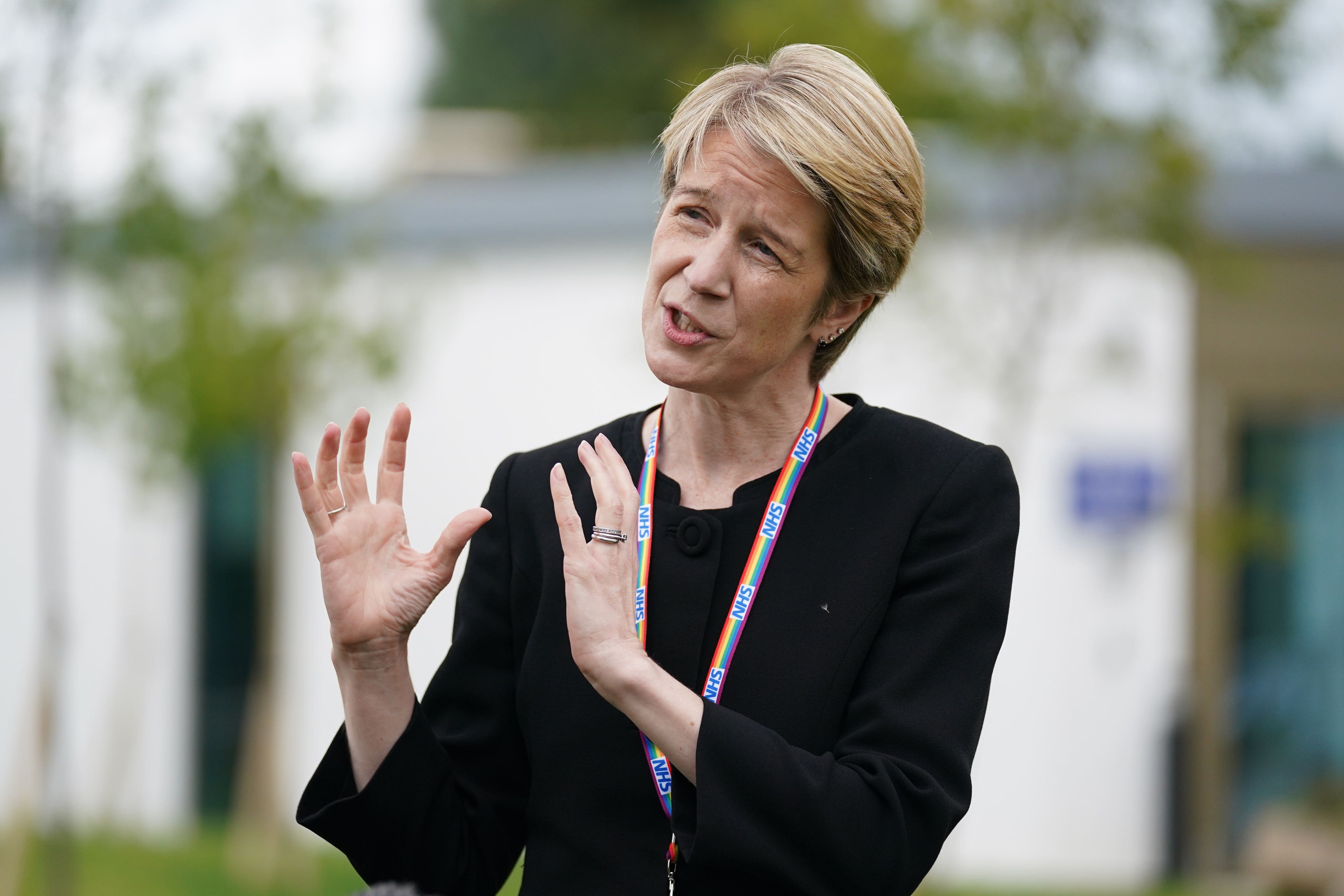Junior doctors’ strikes pose ‘serious risk to patient safety’, NHS head says
Amanda Pritchard, NHS England’s chief executive, said the action ‘creates risk and upheaval’.

Your support helps us to tell the story
From reproductive rights to climate change to Big Tech, The Independent is on the ground when the story is developing. Whether it's investigating the financials of Elon Musk's pro-Trump PAC or producing our latest documentary, 'The A Word', which shines a light on the American women fighting for reproductive rights, we know how important it is to parse out the facts from the messaging.
At such a critical moment in US history, we need reporters on the ground. Your donation allows us to keep sending journalists to speak to both sides of the story.
The Independent is trusted by Americans across the entire political spectrum. And unlike many other quality news outlets, we choose not to lock Americans out of our reporting and analysis with paywalls. We believe quality journalism should be available to everyone, paid for by those who can afford it.
Your support makes all the difference.Strikes by junior doctors are a “serious risk to patient safety”, the head of the NHS has said.
Amanda Pritchard, NHS England’s chief executive, said the action “creates risk and upheaval”.
And she said that tens of thousands of appointments would be affected by the action.
She also warned of “real pressures” on emergency systems due to the heat.
Once again we are heading into this period of industrial action against a backdrop of rising pressures
Health leaders from the NHS ducked out of the institution’s annual conference so they can manage the pressures from the walk out.
Ms Pritchard spoke briefly at the NHS ConfedExpo conference in Manchester before heading back to London to help manage the situation.
She said: “I want to give my apologies for the unavoidable disruption to the schedule and speaking personally, I wish that I could stay longer.
“Sadly, I need to go straight back to the office having already done incident management calls remotely this morning.
“As valuable as this time is to connect and share and learn together we must prioritise the management of what is a serious business continuity incident and therefore a serious risk to patient safety.”
She added: “I know in recent days there have been real pressures on urgent and emergency care systems, not least because of the heat, and the increased demand with now industrial action as well.”
Ms Pritchard continued: “Once again we are heading into this period of industrial action against a backdrop of rising pressures.
“So as regrettable as it is that so many colleagues won’t be able to be here this week let’s also show our appreciation for those who are once again working tirelessly to maintain vital services.
“However you feel about the rights and wrongs of industrial action in the NHS our number one priority must be patient care and patient safety both in the immediate window of action, and in the longer term, too.
“Because as much as we learn from managing each action every time it happens it creates risk and upheaval and distracts from our priorities, particularly elective recovery.
“Over half a million appointments have already had to be rescheduled, many of those people will have been waiting months.
“It’s likely we’ll see tens of thousands more affected this week.
“So while the NHS will of course expertly manage the incident to the best of our ability I know we all hope for a resolution soon.”
Other leaders not attending the conference included national medical director Professor Stephen Powis and chief nurse Ruth May.